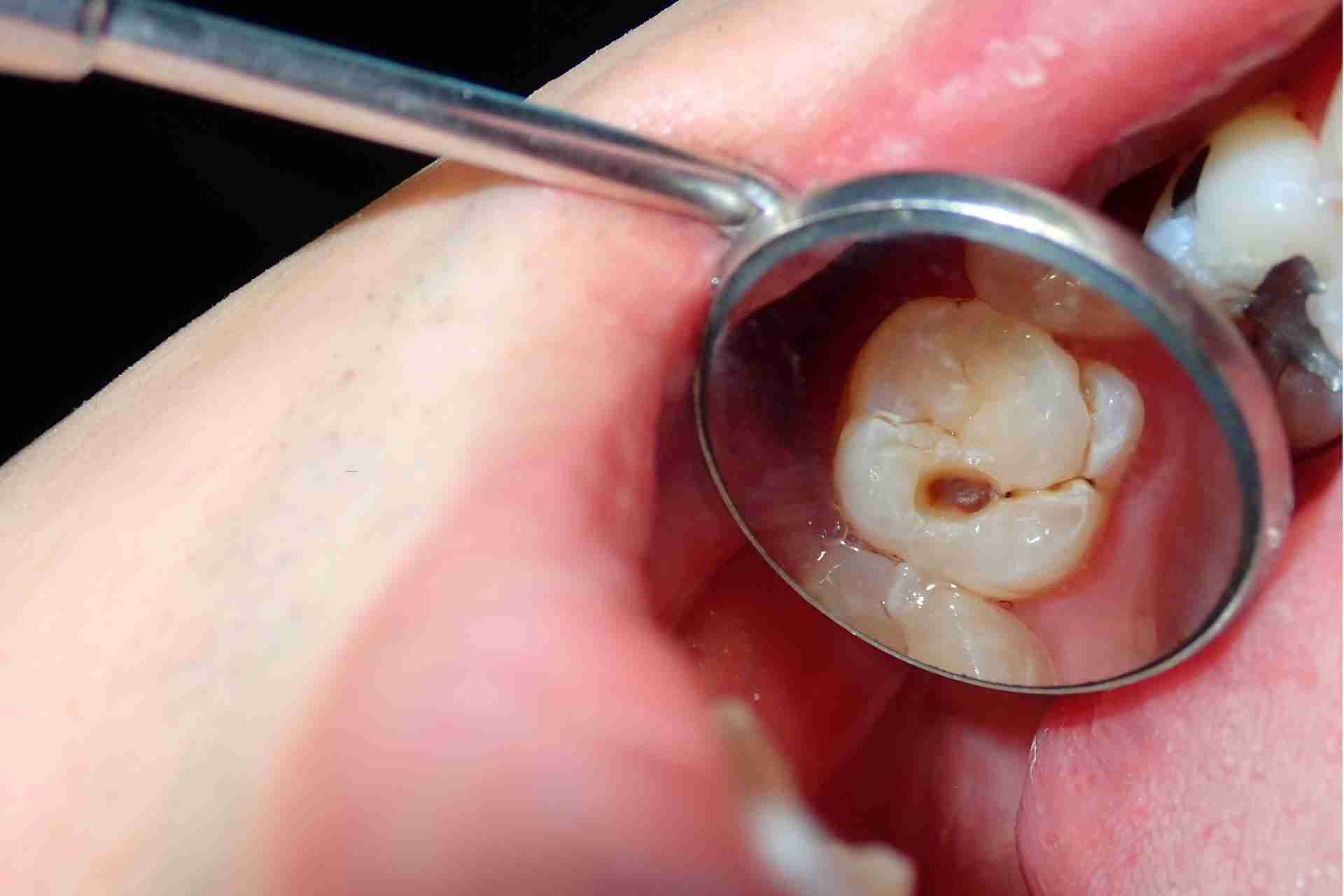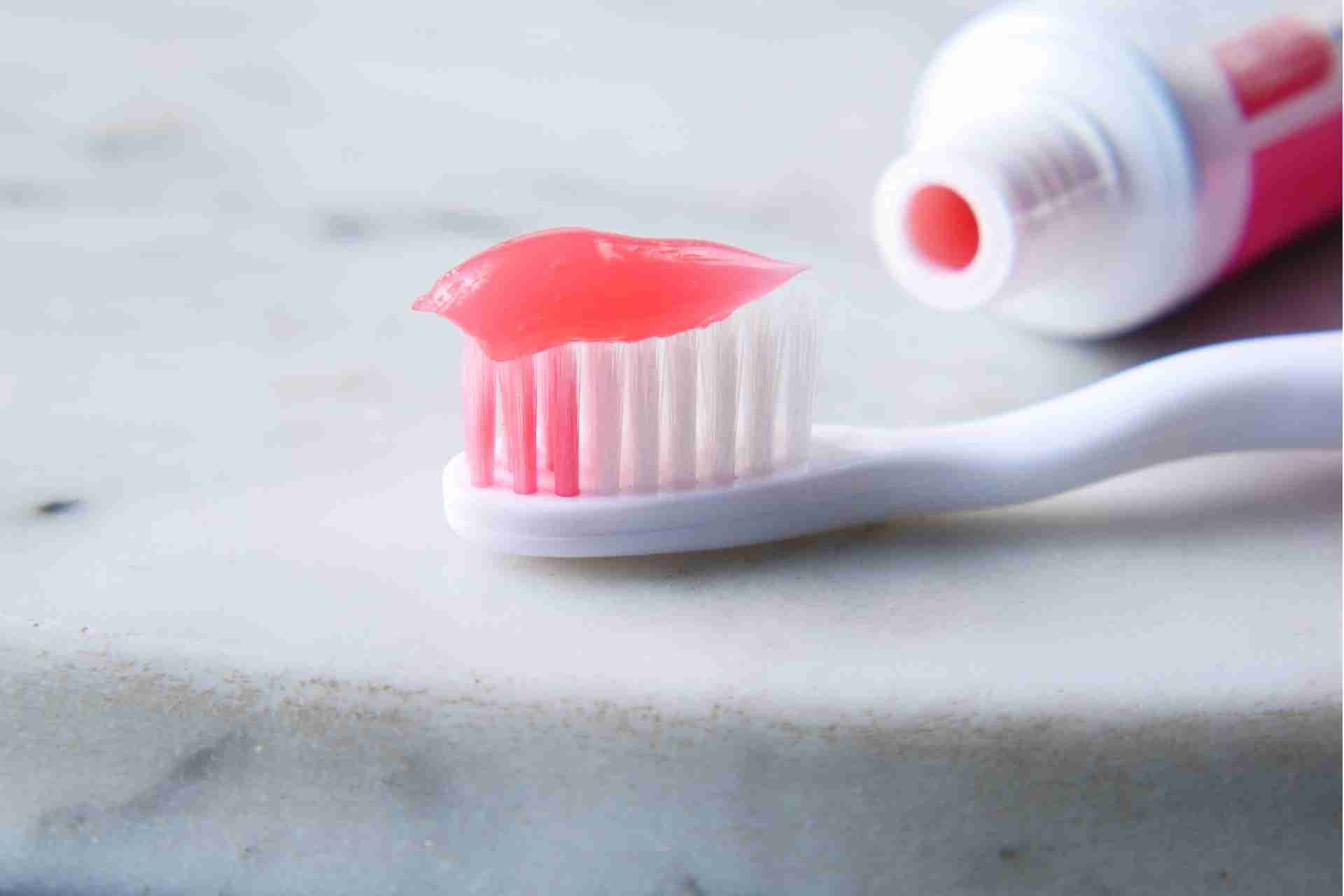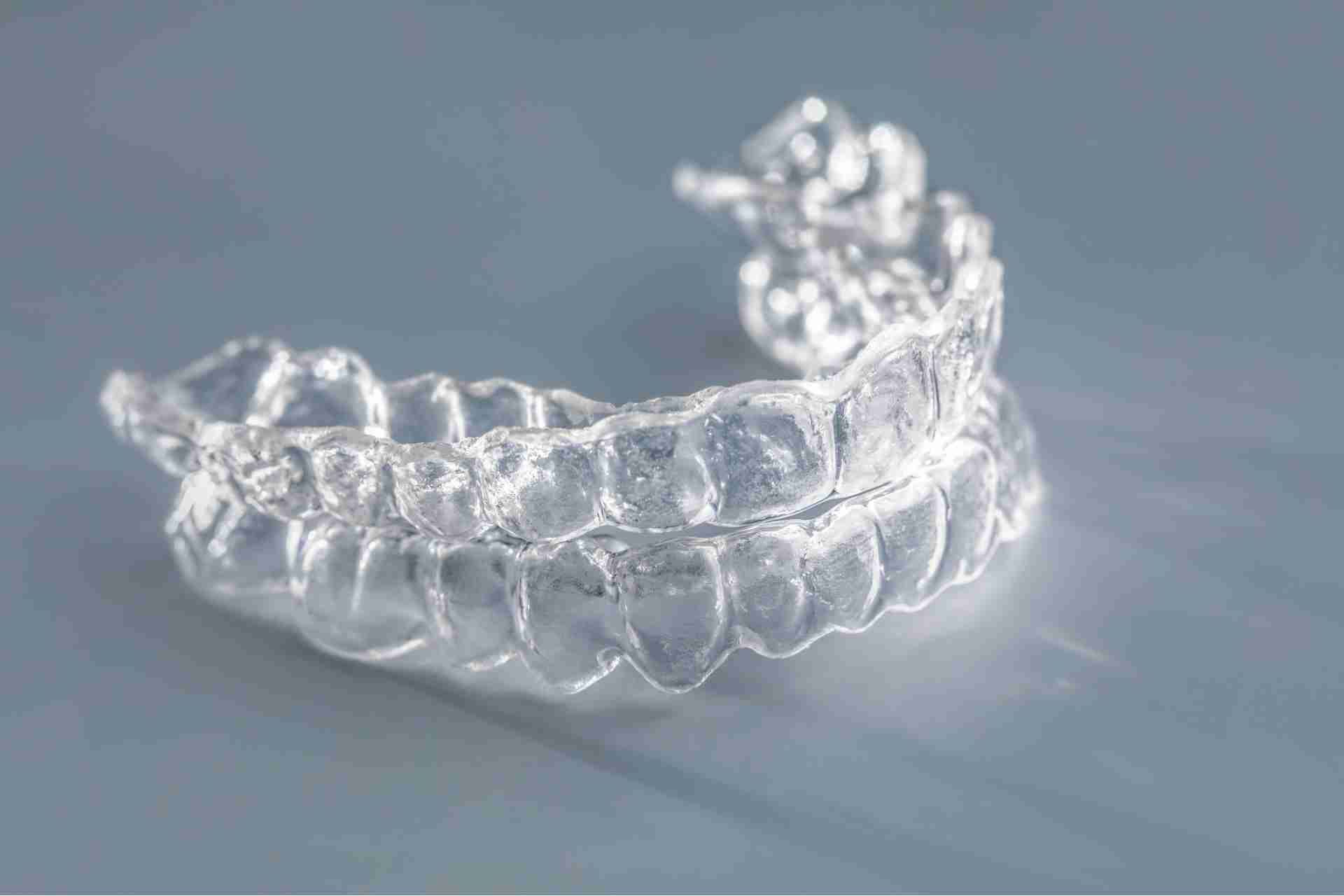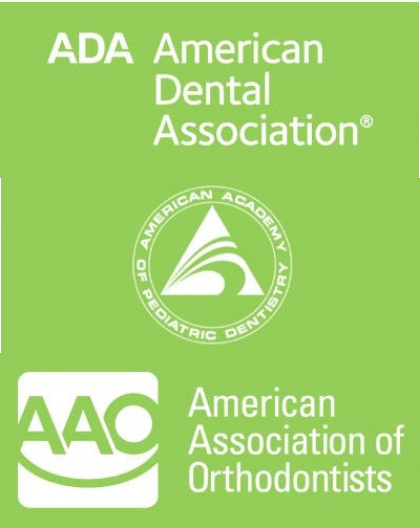Why Does My Tooth Feel Sensitive all of a Sudden?
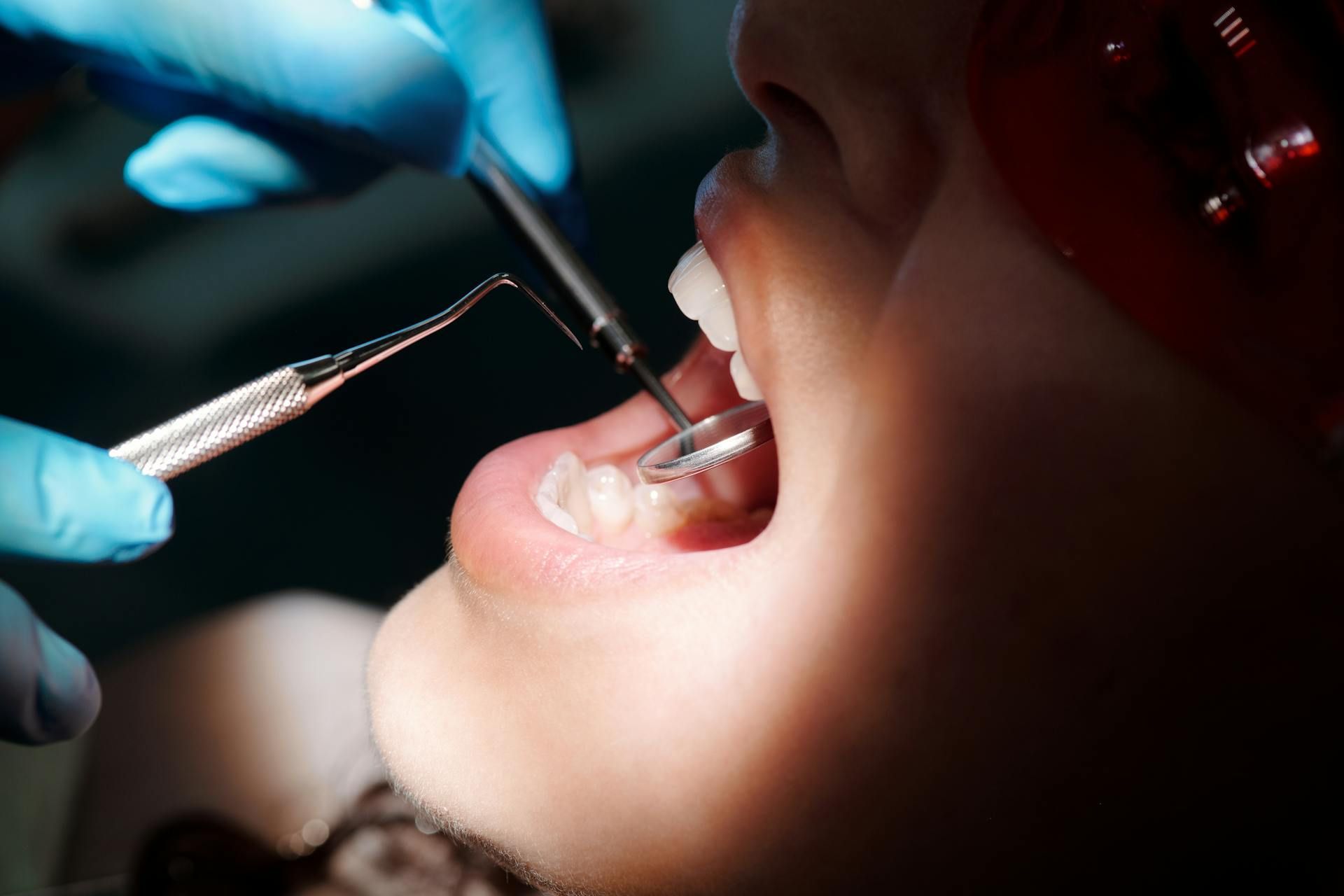
Have you ever experienced sudden tooth sensitivity? Surprisingly, studies show that over 40 million adults in the US experience tooth sensitivity at some point in their lives.
One minute you're enjoying your favorite hot drink or cold treat, and the next you're wincing in pain. Tooth sensitivity can be a frustrating and uncomfortable experience, but understanding the root cause can help you find relief.
But why does it happen out of the blue? The answer might lie in various factors, from common dental issues to everyday habits that could be affecting your dental health.
Let's explore the possible reasons behind this sudden sensitivity and what you can do about it.
What is Sudden Tooth Sensitivity?
Sudden tooth sensitivity can occur when the tooth enamel is worn down, exposing the dentin underneath. Dentin is the sensitive inner layer of the tooth that contains nerve endings. When dentin is exposed, it can lead to sharp and fleeting pain when the tooth comes into contact with hot or cold substances. Other factors that can contribute to sudden tooth sensitivity include tooth decay, gum disease, teeth grinding, and fractured teeth.
Common Causes of Sudden Tooth Sensitivity
Tooth sensitivity is a common dental problem that affects millions of people around the world. It occurs when the protective outer layer of the teeth, called enamel, wears down, exposing the underlying dentin and nerves. When these nerves are exposed to hot, cold, sweet, or sour foods and drinks, they can send a jolt of pain to the brain, causing discomfort and sensitivity.
There are several common causes of sudden tooth sensitivity, including:
Brushing too hard
When we brush our teeth, it’s important to remember that gentle is key. Brushing too hard can actually do more harm than good, as it can wear down the enamel on our teeth and expose the sensitive nerves underneath. This can lead to sudden tooth sensitivity, which can be quite uncomfortable and even painful.
Tooth sensitivity can make everyday activities like eating and drinking a challenge, as it can cause sharp pain when exposed to hot, cold, sweet, or acidic foods and beverages. If left untreated, tooth sensitivity can worsen over time and lead to more serious dental issues.
Acidic foods and drinks
Acidic foods and drinks can erode the enamel on our teeth, making them more susceptible to pain and discomfort.
Enamel is the outer layer of our teeth that protects the sensitive inner layers. When this enamel is worn down, it exposes the dentin underneath, which contains nerve endings that can cause pain when exposed to hot, cold, or sweet stimuli. Acidic foods and drinks can weaken the enamel and make it more prone to erosion, leading to increased tooth sensitivity.
Some common acidic foods and drinks that can contribute to tooth sensitivity include citrus fruits, tomatoes, vinegar, soda, and certain types of alcohol. These foods and drinks have a low pH level, which means they are highly acidic and can wear down the enamel on our teeth over time. Even eating or drinking them in moderation can have a negative impact on our dental health.
Gum recession
One of the most common causes of tooth sensitivity is gum recession, a condition where the gums pull away from the teeth, exposing the sensitive roots underneath.
Gum recession can be caused by a number of factors, including aggressive brushing, gum disease, aging, and genetics. When the gum tissue pulls away from the teeth, it leaves the roots of the teeth exposed, which can lead to increased sensitivity to hot, cold, sweet, or acidic foods and drinks.
Tooth decay
Tooth decay occurs when the enamel of the tooth is damaged due to acids from bacteria that feed on sugars in the mouth. This can lead to cavities, which can in turn cause sudden tooth sensitivity.
Tooth sensitivity is a common issue that many people face, but when it occurs suddenly, it can be a sign of a more serious problem. When tooth decay reaches a certain stage, it can expose the nerves and blood vessels in the tooth, leading to sensitivity to hot, cold, sweet, or acidic foods and drinks.
Teeth grinding
Teeth grinding can cause a myriad of dental issues, one of which is sudden tooth sensitivity.
Tooth sensitivity is a common dental complaint that affects millions of people worldwide. It is characterized by a sharp pain or discomfort when consuming hot or cold foods and beverages, or when brushing your teeth. In some cases, tooth sensitivity can also occur without any apparent trigger.
The main cause of tooth sensitivity in individuals who grind their teeth is the wearing down of tooth enamel. When you grind or clench your teeth, excessive pressure is placed on the enamel, eventually causing it to erode. Once the enamel is worn down, the sensitive dentin (the layer beneath the enamel) is exposed, leading to heightened sensitivity.
Teeth grinding can also cause micro-fractures in the tooth structure, which can make the teeth more susceptible to sensitivity. These micro-fractures can lead to the development of cracks in the teeth, allowing hot or cold stimuli to penetrate the tooth and cause discomfort.
It's important to address tooth sensitivity caused by teeth grinding as soon as possible. Ignoring the issue can lead to further damage to the teeth and potentially more serious dental problems down the line. To help alleviate tooth sensitivity, consider the following tips:
- Wear a mouthguard at night to protect your teeth from grinding.
- Practice stress-reducing techniques to prevent clenching your jaw throughout the day.
- Avoid consuming foods and beverages that are overly hot or cold.
- Use a toothpaste specifically designed for sensitive teeth.
- Schedule regular check-ups with your dentist to monitor the health of your teeth and address any concerns.
Dental procedures
Many people report heightened sensitivity after having a dental procedure done, such as a filling, crown placement, or teeth whitening treatment. So why does this happen and what can you do about it?
There are several reasons why dental procedures can cause sudden tooth sensitivity. One common reason is that the procedure may have irritated or inflamed the nerves in your teeth. This irritation can lead to increased sensitivity to hot, cold, sweet, or sour foods and drinks. Additionally, dental procedures can sometimes expose the inner layers of your teeth, which are more sensitive to external stimuli.
So, what can you do to alleviate tooth sensitivity after a dental procedure? Here are a few tips:
- Use a toothpaste designed for sensitive teeth, such as Sensodyne or Colgate Sensitive. These toothpastes can help desensitize your teeth and provide relief from sensitivity.
- Avoid consuming hot, cold, sweet, or sour foods and drinks immediately after a dental procedure. Stick to room temperature foods and drinks to reduce irritation to your teeth.
- Practice good oral hygiene, including gentle brushing and flossing, to prevent further irritation to your teeth and gums.
- Consider using a fluoride rinse or gel to strengthen your tooth enamel and reduce sensitivity.
If your tooth sensitivity persists or worsens after a dental procedure, be sure to consult with your dentist. They may recommend further treatment or provide additional tips for managing your sensitivity.
How to Manage Sudden Tooth Sensitivity
Sensitive teeth can make it difficult to enjoy hot or cold foods and drinks, and even cause pain when brushing or flossing. Fortunately, there are steps you can take to manage sudden tooth sensitivity and improve your oral health.
One of the first things you should do if you experience sudden tooth sensitivity is to schedule an appointment with your dentist. Tooth sensitivity can be caused by a variety of factors, including tooth decay, gum disease, enamel erosion, or even a cracked tooth. Your dentist will be able to assess the cause of your sensitivity and recommend a treatment plan to address it.
In the meantime, there are some steps you can take at home to help manage your tooth sensitivity. One of the most important things you can do is to practice good oral hygiene. Make sure you are brushing your teeth twice a day with a soft-bristled toothbrush and using fluoride toothpaste. Flossing daily can also help remove plaque and prevent gum disease, which can contribute to tooth sensitivity.
Another way to manage tooth sensitivity is to avoid acidic foods and drinks, as well as sugary and starchy foods. These can contribute to enamel erosion and tooth decay, which can make your teeth more sensitive. Instead, opt for a balanced diet full of fruits, vegetables, lean proteins, and whole grains to keep your teeth healthy.
If you find that your tooth sensitivity is triggered by hot or cold temperatures, try using a toothpaste designed for sensitive teeth. These toothpastes contain desensitizing agents that can help reduce sensitivity over time. You can also try using a soft-bristled toothbrush and gentle brushing technique to avoid further irritating your teeth.
If you grind your teeth at night, consider wearing a nightguard to protect your teeth from further damage. Grinding can wear down the enamel on your teeth, making them more sensitive. Your dentist can fit you for a custom nightguard that will help protect your teeth while you sleep.
Preventing Sudden Tooth Sensitivity
While tooth sensitivity can be annoying and uncomfortable, the good news is that there are steps you can take to prevent it from happening in the first place. Here are some tips on how to prevent sudden tooth sensitivity:
- Use a soft-bristled toothbrush: Brushing your teeth too hard can wear down the enamel on your teeth, leading to sensitivity. To avoid this, use a toothbrush with soft bristles and brush gently in a circular motion.
- Use a desensitizing toothpaste: Desensitizing toothpaste can help block the nerve endings in your teeth, reducing sensitivity. Look for a toothpaste that contains potassium nitrate or stannous fluoride, which are known for their desensitizing properties.
- Avoid acidic foods and drinks: Acidic foods and drinks, such as citrus fruits, soda, and wine, can wear down the enamel on your teeth and make them more sensitive. Limit your consumption of these items to help prevent sensitivity.
- Practice good oral hygiene: Proper oral hygiene is key to preventing tooth sensitivity. Make sure to brush your teeth twice a day, floss daily, and visit your dentist regularly forings and check-ups.
- Wear a mouthguard: If you grind your teeth while you sleep, this can cause enamel erosion and lead to sensitivity. Consider wearing a mouthguard at night to protect your teeth from grinding.
Whot to Call When Tooth Feel Sensitive All of a Sudden
When your teeth start feeling sensitive all of a sudden, it's important to not ignore the symptoms and instead, reach out to a dental professional for help. One great option for those in the Pennington area is Pennington Orthodontics & Pediatric Dentistry.
Our dental office specializes in both orthodontic care and pediatric dentistry, making us a great choice for individuals of all ages experiencing tooth sensitivity. Our team of experienced and compassionate professionals can help diagnose the cause of your sensitivity and provide personalized treatment options to alleviate your discomfort.
Contact Pennington Orthodontics & Pediatric Dentistry, to receive expert care and guidance to help alleviate your discomfort and improve your overall oral health


